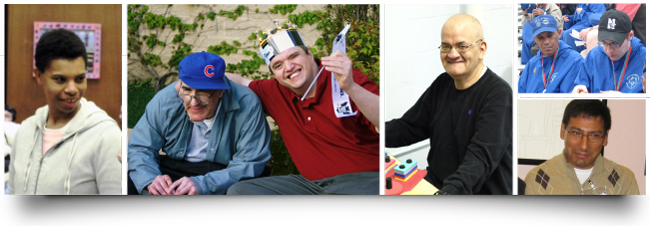
Austin Special Chicago operates CILA (Community Integrated Living Arrangement) group homes in Chicago. Each CILA house provides services to eight or fewer adults who are unable to live independently, but are capable of community living with an appropriate level of supervision, assistance, and supportive services. Staffing consists of direct service staff who are scheduled around the clock whenever residents are home, as well as a full-time manager at each house. Many residents attend the Austin Special Developmental Training Program during the day and go on outings together on evenings and/ or weekends. The CILA program offers individualized guidance and intensive training to clients, based on their abilities, dreams, and desires, in the skills of daily living, money management, medication administration, community integration, and others. Residents receive 24-hour supervision and are encouraged to live as independently as possible.
The residences are conveniently located near transportation, shopping, and the residents’ work or vocational training sites. Staff provides support and services as a liaison to the Department of Human Services, Social Security, and other community resources such as educational, vocational, medical, legal, and recreational, while training residents to use these resources on their own. Residents may continue in the program for as long as they continue to need the support of the services.
Message from the Residential Program Director
“While it is true that, in light of today’s economic realities, we are lacking some of the financial resources we had before, Austin Special is rich in relationships, skills, commitments, and assets. It is impossible to measure the value of the hours that volunteers put into the pancake breakfast, or of regular visits and phone calls that family members make to residents, or of staff who are willing to go an extra mile to make a resident’s birthday special. It is the strengths, abilities, and resources of the clients, however, which can be the most difficult and important to recognize. The population of people with disabilities is, in general, all too accustomed to having their ideas ignored, desires overlooked, abilities undeveloped, and social circles drastically limited. But they do have those things, and they are tremendous assets to their own lives and the lives of those around them. It is a joy to see families and staff that celebrate and nurture their unique thoughts, wants, skills, and relationships.”
~Rebecca Walker
Watch…
